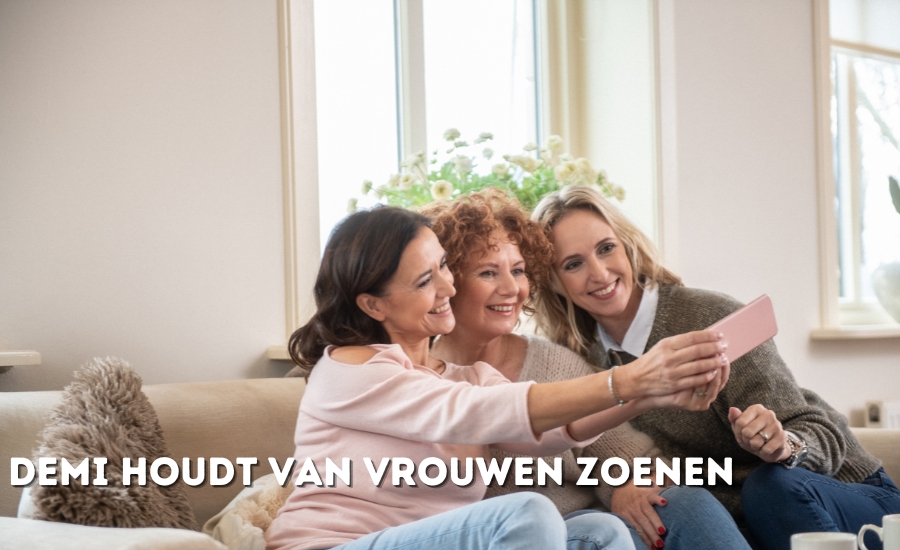In a world where love knows no boundaries, the Dutch phrase “demi houdt van vrouwen zoenen” beautifully captures the essence of affection and openness towards same-sex relationships. Translating to “Demi loves kissing women,” this simple yet profound statement reflects not only personal feelings but also the cultural attitudes of the Netherlands, a country renowned for its progressive views on love and relationships.
This article will explore the meaning behind this phrase, its cultural significance, and the broader implications of love and acceptance in society. By delving into various aspects of this expression, we aim to highlight the beauty of affection in all its forms and how it contributes to the richness of human experience.
Understanding the Phrase
To fully grasp the meaning of “demi houdt van vrouwen zoenen,” we can break it down into its parts:
- Demi: This is a name. It can stand alone or be short for longer names like Demetria or Demetrius. In this phrase, it refers to a person named Demi who expresses affection towards women.
- Houdt Van: This part means “loves” or “likes.” It’s how Dutch people say they love or are fond of something. The verb is “houden van,” which is similar to saying “to love” in English.
- Vrouwen: This is the Dutch word for “women.” The singular form, “vrouw,” means “woman,” but here it’s plural, meaning “women.”
- Zoenen: This word translates to “kissing.” It’s the verb form, so it means “to kiss.”
When we put it all together, the phrase means: “Demi loves kissing women.”
Exploring the Term “Demi”
In this context, “Demi” is simply a name. It can be used in Dutch and other cultures. This name shows that the person has affectionate feelings towards women. Names can carry a lot of meaning, and Demi is a beautiful example of how identity is shaped by love and acceptance.
Cultural Context
In Dutch culture, showing affection through kissing is quite normal and widely accepted. The Dutch people are known for being open-minded and liberal regarding relationships and love. This includes acceptance of same-sex relationships. Public displays of affection, like kissing, are generally accepted in the Netherlands.
The phrase “demi houdt van vrouwen zoenen” reflects the Netherlands’ openness to people expressing affection, regardless of whether the relationship is same-sex or not. This openness fosters an environment where love can be expressed freely without fear of judgment.
The Importance of Expression in Relationships
Affection is crucial in all types of relationships. It helps build strong connections between people. Kissing is a common way to show love and appreciation. It symbolizes care and affection, making it an important part of human interaction.
When we say “Demi loves kissing women,” we see that love can be expressed in various ways. Kissing is just one form of showing how we feel about someone. This expression of love is essential for healthy and happy relationships.
Linguistic Analysis
Grammatically, the Dutch sentence follows a straightforward structure:
- Subject: “Demi” (the person)
- Verb: “houdt van” (loves or likes)
- Object: “vrouwen zoenen” (kissing women)
The verb “houden van” is commonly used in Dutch to express feelings of love or affection, much like we use “to love” in English. The word “zoenen” means kissing, which adds to the affectionate nature of the phrase.
Social Implications
The Netherlands has been a global leader in promoting LGBTQ+ rights. In fact, it was the first country to legalize same-sex marriage back in 2001. Because of this, expressions like “demi houdt van vrouwen zoenen” are not seen as unusual or controversial in Dutch society. The Netherlands values equality and openness, and this phrase reflects that attitude toward same-sex relationships.
A Progressive Society
The acceptance of same-sex love and relationships in the Netherlands showcases how society can evolve. Dutch people celebrate love in all its forms, which creates a supportive environment for everyone. This progressive attitude is essential for a healthy society where individuals feel free to express their true selves.
Comparative Analysis

You can find similar phrases in many languages. For example, in English, someone might say: “Demi loves kissing women.” The structure and meaning of the sentence remain similar, although how people react to it might vary depending on the country or culture.
Some countries are more accepting of LGBTQ+ relationships, while others might not be as open. However, phrases like this usually convey the same meaning across different languages. The acceptance levels may change based on cultural norms, but the core message of love remains constant.
Media Representation
In Dutch media, LGBTQ+ relationships are generally portrayed positively. This portrayal has helped Dutch society become more accepting of different types of relationships. Many famous Dutch celebrities are openly part of the LGBTQ+ community and are celebrated in the media.
Role Models
Having role models in the public eye who are open about their identities can inspire others. This visibility contributes to the normalization of same-sex relationships, making it easier for people to accept and embrace their feelings.
Psychological Perspectives
From a psychological point of view, expressing affection, like kissing, is a normal human behavior. It’s part of how we show our feelings to others. Psychologists have studied love and attraction for years and agree that same-sex attraction is a natural variation of human sexuality.
People express love and affection in different ways, and how society views these expressions can affect how comfortable people feel showing them. In the Netherlands, where LGBTQ+ rights are protected, people can express their feelings more freely.
Legal Aspects
The legal system in the Netherlands strongly supports LGBTQ+ rights. Dutch law allows same-sex couples to get married, adopt children, and protects them from discrimination. These laws help ensure that everyone has equal rights and can express their love without fear.
Because of this, a phrase like “demi houdt van vrouwen zoenen” is not just a simple statement of affection. It also reflects the legal protections and social acceptance that LGBTQ+ people have in the Netherlands.
Conclusion
At the end of this discussion, the phrase “Demi houdt van vrouwen zoenen” reflects both the cultural openness and legal protections for LGBTQ+ individuals in the Netherlands. It’s a simple yet powerful expression of love and affection that mirrors the broader acceptance of same-sex relationships in Dutch society. By celebrating love in all its forms, we can foster a more accepting and understanding world for everyone.
For further details, you can search our website Hookstap for meanings of anything. We hope you have a better understanding of the meaning of “Demi houdt van vrouwen zoenen.” Happy reading!
FAQs
Q: What does “Demi houdt van vrouwen zoenen” mean?
A: The phrase means “Demi loves kissing women” in English. It’s a Dutch sentence expressing affection from a person named Demi towards women.
Q: Is this phrase common in Dutch culture?
A: Kissing as a form of affection is common in Dutch culture, and the phrase reflects the country’s open attitude towards love, including same-sex relationships.
Q: Is “Demi” a common name?
A: “Demi” is used in Dutch and other cultures. It can be a standalone name or short for something longer like Demetria or Demetrius.
Q: How does Dutch society view same-sex relationships?
A: Dutch society is known for being accepting and supportive of LGBTQ+ rights. Same-sex marriage has been legal in the Netherlands since 2001.
Q: What is the legal status of LGBTQ+ rights in the Netherlands?
A: The Netherlands has strong laws protecting LGBTQ+ rights. Same-sex marriage is legal, and LGBTQ+ people are protected from discrimination.
If You Want the Latest Blogs, Stay with DenverInsiders

Leave a Reply